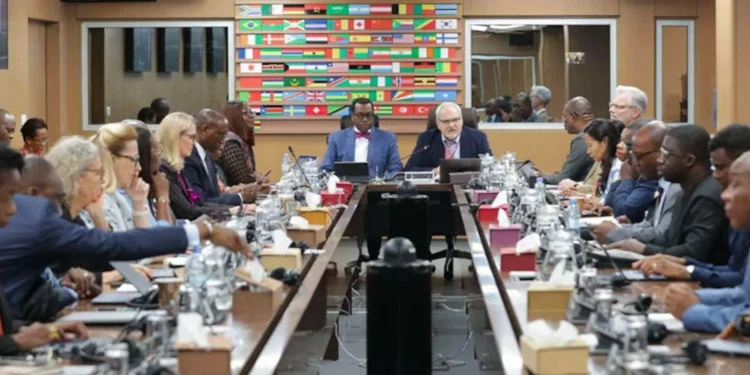The recent meeting of the 17th replenishment cycle of the African Development Fund (ADF-17) underscores the ongoing commitment to Africa’s transformation. Over three days of strategic discussions, leaders from the African Development Bank, international delegates, and representatives of recipient countries explored innovative mechanisms to finance sustainable development across the continent. These meetings are essential to ensuring that low-income African countries receive continued support in infrastructure, regional integration, and economic development.
The President of the African Development Bank Group, Dr. Akinwumi Adesina, emphasized the tangible impact of the ADF in recent years, highlighting that millions of Africans have gained access to electricity, improved transportation, clean water, and better agricultural opportunities through its initiatives. These achievements reflect the Fund’s crucial role in enhancing quality of life and promoting inclusive growth. With a focus on tangible outcomes, ADF-17 aims to further strengthen Africa’s economic resilience and its ability to tackle future challenges.
Equatorial Guinea Showcases Its Potential at the Lisbon International Tourism Fair
A key topic of discussion was the mobilization of domestic resources and financial transparency, crucial aspects for Africa to reduce its dependence on external aid. Strengthening tax systems and combating illicit financial flows were identified as essential steps toward greater self-sufficiency. Additionally, the private sector was recognized as a fundamental driver of development, with calls to improve access to financing, attract foreign investment, and foster innovative solutions to accelerate the continent’s economic transformation.
The discussions also addressed new financing approaches, such as the Market Loan Option, which would allow the Fund to access additional capital to expand its impact. The transition from grants to highly concessional loans aims to ensure that the most vulnerable countries continue receiving necessary support while preserving the ADF’s financial sustainability. These strategies reflect a shift towards more efficient financing models with greater adaptability to Africa’s evolving needs.
Looking ahead, the next replenishment meeting in May 2025 will provide an opportunity to refine strategies and expand private sector participation in development financing. With Africa projected to represent a quarter of the global population by 2050, these initiatives are crucial to ensuring that African economies remain resilient, sustainable, and capable of providing decent jobs for the continent’s growing youth population. Meetings like this not only strengthen international cooperation but also set a clear roadmap toward a more prosperous and self-sufficient Africa.









